Meet two of the world’s best mixologists; cocktail trends and tips
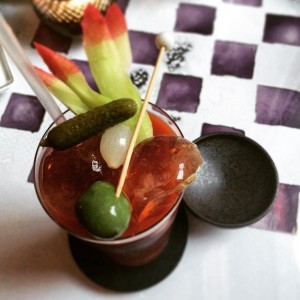
The cocktail menu at Artesian in London completely changes once a year (July) apart from classics like this Bloody Mary – photo courtesy of Mrs Bubbly who visited last month
Two of the world’s best bartenders, or mixologists if you prefer a hype word visit Dubai within the space of a week; both are hugely different in how they practise their craft.
First up, is the humble and honest Czech Alex Kratena, the head bartender at the Artesian cocktail bar in London’s Langham Hotel, voted number one in the World’s 50 Best Bar Awards for the third consecutive year (also collecting numerous personal awards) – brought to Dubai by Monin and Fresh Express.
Secondly, the slick and savvy, Chicago native Charles Joly, the current Diageo World Class Bartender of the Year is an international bar consultant, whilst also running a premium, prepared cocktails company – in Dubai to judge the UAE leg of the World Class Championships.
In my interviews with them both, they surprisingly often agree whilst bringing different perspectives – but sometimes disagree. Mix your favourite cocktail, or follow their tips below, and read on :).


From left to right: Alex Kratena at Zengo and Charles Joly at Embassy.
1. Do you call yourself a bartender or mixologist? Many in the industry don’t necessarily agree to be defined as a mixologist. Or is mixology just a specialty of bartending?
Alex: [LAUGHS]. The whole mixologist thing has been viewed quite controversially over the last ten years. The job is the same no matter whether you are pulling pints or making drinks. But I like to compare it to the perfume industry; the role of the perfumer is to create recipes that the technicians assemble. Everyone is a bartender though. There has been huge pressure to distinguish mixologists. It’s not a standardised profession with set qualifications. No matter how many courses you complete, you still need experience. I hate to make a division between these roles.
Charles: Only when I talk to media do I use the term mixologist. We are bartenders; it’s a type of bartender; it’s a designation. There is some accreditation in the US that has been modelled after the master sommelier programme. It’s just a word, a nomenclature, it doesn’t matter to me what it’s called. But it does help people understand; as long as you are a bartender first.
2. How far along is the industry in closing the gap between chef and head bartender in rank and exposure?
Alex: I think in the last ten to 15 years, there has been a huge change as to how bartenders are perceived, but we are still nowhere near chefs. We have a long way to go. So rather than thinking about how important we are, we should just get working. I now get recognised on a plane and I can get upgraded because I am a bartender; people want to take my picture. But it will take one more generation for change.
Charles: The food movement led our guests to more interesting territory and to also become cocktail enthusiasts. We pay a little more attention to detail in our cocktails; the way chefs have to make sauces and stocks, we do the same with classic cocktails, so there’s a similar progression and learning with us. We will close the gap once we break the TV barrier (like chefs did). I have been actively working on this for many years. There are the wrong shows, hosts, concepts and lots of silliness based around watching a comedian get drunk which does not speak to what we do. My goal is to continue to grow our craft and our careers; to expose as many people to it as possible. I want to see the expectation grow. Quality should be a given. It took us 75 years after Prohibition to catch up to where we were before.
3. What are the latest trends on the bar scene? What kind of cocktails will we be sipping on?
Alex: There won’t be trends in the future. Everything has been done, so it will be hard for there to be a game changer. There are ten to 15 bars around the world that really innovate; the rest just follow – like with restaurants. There are things that are constant though; for instance time. So much more is prepared in advanced now than before. This is one of the huge concerns across the world. We design tools now, not objects. We have infusions and design blends with function more so now than in the past. There are a lot of niche and independent producers – pisco, mescal, armagnac. Companies are no longer investing in R&D. It’s cheaper to wait for young people to develop new brands and the moment they hit volume, they buy them!
Charles: It’s about hospitality and enhancing the guest experience; that encourages longevity. Fresh and seasonal is the most basic, but important trend. Specialty bars – whiskey, tequila, gin, everything is being done. Local, neighbourhood bars that are very accessible and make great cocktails. Craft distilleries have exploded and drive innovation; doing things big brands can’t do.
4. Alex, you have publicly said that non-alcoholic is the new vegetarian. A very apt statement for the Middle East region. Explain. Charles, what’s your view on non-alcoholic cocktails?
Alex: The moment you can’t fall back on big alcoholic flavours, it becomes more challenging and forces you to be creative. So you have to focus more on the ingredients; how to get the best out of vegetables, grains, rice, seaweed; use fermentation. I drew this comparison because non-alcoholic drinks are going through what vegetarianism did in the 70/ 80s. If a chef does not need meat on every plate, why do we need alcohol? In most places, they serve fruit punch, and don’t even try and ask for anything else. People sometimes have to go out five/ six/ seven nights a week, so surely there’s going to be at least once when you don’t want to drink. Our regulars tell us they love the non-alcoholic cocktails because no one can ever tell if they are drinking or not. And you can make more money on selling non-alcoholic drinks!
Charles: I think it’s great. I have very specific opinions on how I like menus to be, and non-alcoholic has always been an important section; one I have given time and attention to for a multitude of reasons. I write menus for my guests not for myself. The act of bartending should be a selfless act, like giving a gift to your guest. If you come in with five friends, I want a Manhattan-style cocktail on the menu; something light and refreshing; something herbal; something fruity; something sparkling; and that person who isn’t drinking whether that’s for religious reasons, being pregnant or a designated driver, I want them to have the same experience. I don’t want them to drink juice. We worked very hard at the Aviary [where Charles developed the cocktail programme] to replicate the alcoholic cocktails to give a similar, multi-sensory experience.
5. How important is the need to have ‘a show’ when mixing cocktails? Charles, especially you, given you openly insist on quality over quickness?
Alex: Depends what you perceive to be a show. For me having the tartare made at the table, or a sushi chef in front of me, that’s a show. In the drinks industry people still have to wait a little too much; there should be more prep. We try to cut out steps in the process, and then all you need is one little move to make it amazing.
Charles: Time is relative. When the cocktail movement started to hit a dozen years ago, it took 15 minutes to make a drink. If it’s on your menu, you have your mise-en-place, and it’s ready to make. Even at the Aviary you have some of the most complex drinks in the world and I would push for three-minute ticket times. On a very busy night, perhaps six or seven minutes. If it would hit ten minutes something was wrong. It’s irresponsible and egotistical of a place not to be ready; if so, hire more bartenders, streamline [the operation], combine ingredients like in a kitchen; squeeze the lime juice earlier – you don’t need to do that in front of the guest. The show is important; the bar is something of a stage, but it’s not flipping bottles like flair bartenders – that’s not a skill I possess. There is something about watching your bartender prepare your drink in front of you. A pavlovian response to the sound of a cocktail shaker is one that brings a smile. You taste with your eyes first so the drink has to be beautiful.
6. Bar snacks – simple or complicated?
Alex: Depends on the bar. At Artesian, we will soon have a completely new food offering, but a smaller format; informal. If I can keep you in the bar by serving delicious food too, then all the better.
Charles: Depends on the bar. Take Zuma here; you can get some actual courses whilst at the bar. In a more traditional bar, you might want something easy to eat with your hands; you don’t want a bowl of soup. Also depends on the table height. There’s a time and a place for everything.
7. What’s your favourite cocktail and bar?
Alex: Water! I am big on classics. Before dinner, a martini (both gin and vodka) or a negroni. Nomad in New York by the Eleven Madison Park guys never fails to blow my mind.
Charles: I drink almost everything, just depends on my mood. A daiquiri is a great barometer to test a bartender; it’s just three ingredients. Classically a corpse reviver #2, but I change all the ingredients. I have too many friends to name a favourite bar! One of the least important things in a bar is the cocktail; unless you have issues you are not going there just to drink; the drink is incidental. You are going there for an experience, to connect with friends, be by yourself, chat to the bartenders. La Capilla in Tequila in Mexico is a beautiful dump – but the barman is 88, and he is a constant, charming host. You cannot NOT have a good time. When I am there, I am with other bartenders and we’re having fun. You could be in a paper bag and you would still have a good time. It’s about special moments.
8. What’s an easy cocktail to make at home that does not require a dozen, difficult-to-get-hold-of ingredients?
Alex: Fill a glass with ice; pour a measure of vermouth and Campari bitters; a squeeze of orange; and top it up with tonic. No need to shake!
Charles: Daiquiri is the most abused cocktail; cruise ships have ruined it! Sweet and sour should live harmoniously in any cocktail. A basic sour is 60ml rum; 30ml fresh lemon juice; 20ml simple syrup (one part sugar, one part water until dissolved); fresh limes.
Well folks, what’s your favourite cocktail and bar? Any recipe tips?
A bientôt.
FooDiva. x
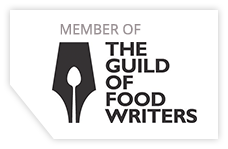














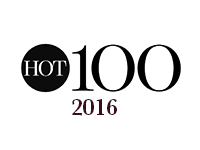
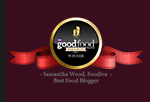
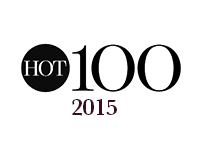







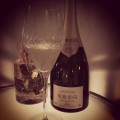
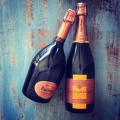

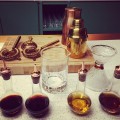
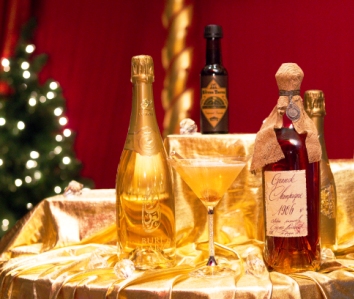

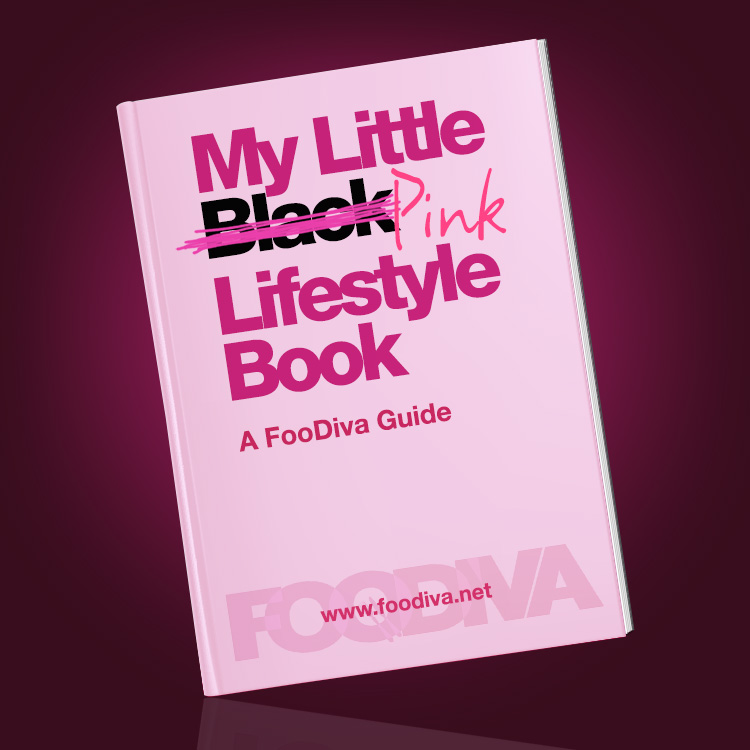






Very interesting article – well done on getting the interviews.
Very pleased to see that they do not think much of the concept of putting on a ‘show display’ such as tossing the bottle etc – things like that only slow down service.
Thanks Johann. It was about time I focused on cocktails! I think the whole ‘flair’ bartending as they call it is now very passe, and guests would rather chat to the barman whilst he is making their cocktail.
Loved these interviews. Really interesting. Having met Charles Joly where he mixed a cocktail for me, I would say he is as much of a meticulous perfectionist as Alex is.
Thanks Sally. They were like chalk and cheese in persona, yet so similar in their views. Can’t wait to read your post. I’ll link it to when it’s live.